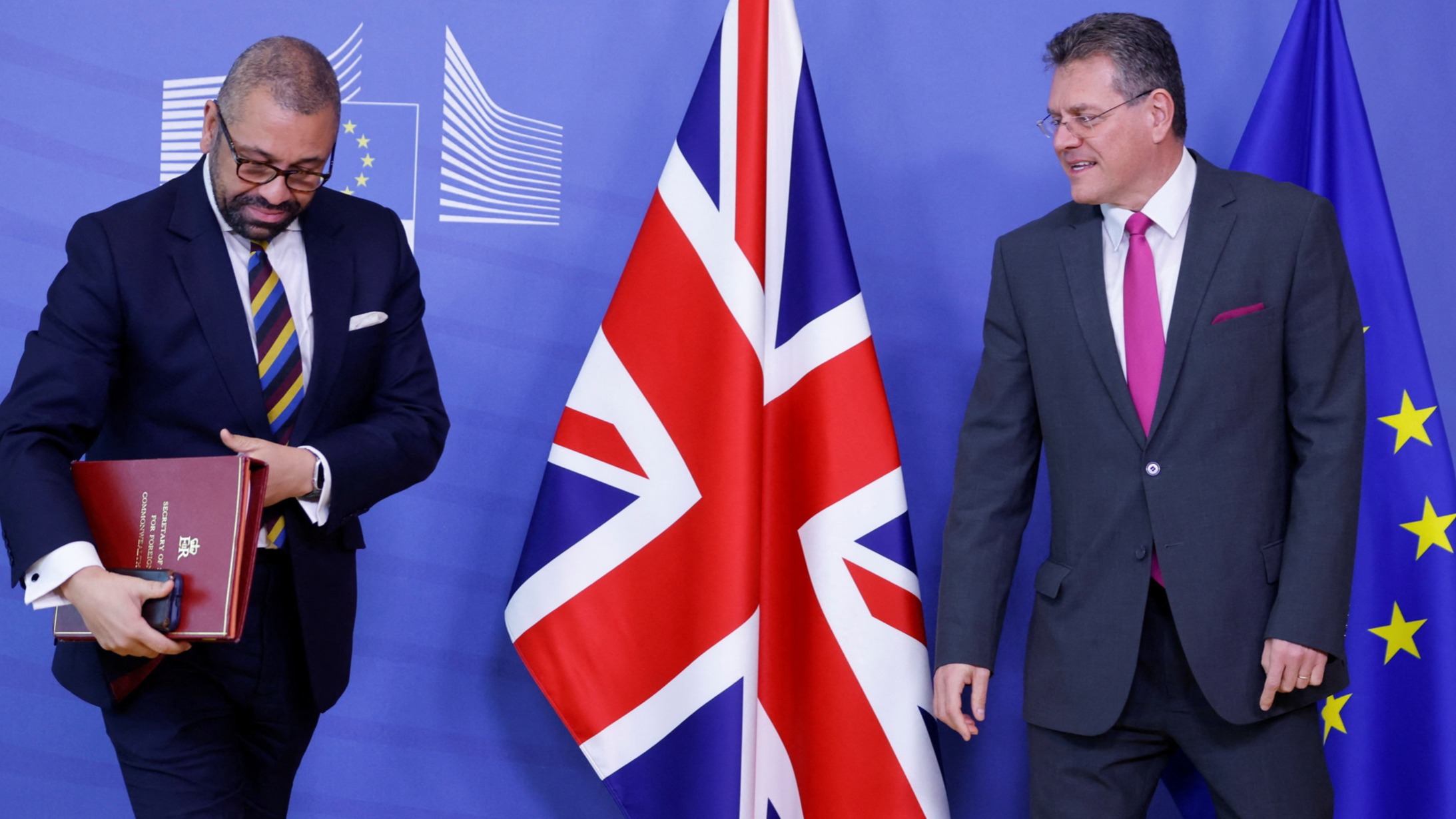UK (Parliament Politic Magazine) – The United Kingdom has declined an offer from the European Union for formal collaboration on global issues, despite the improved relations between the two sides since the diplomatic breakthrough in February regarding post-Brexit trading arrangements in Northern Ireland.
The proposal for regular formal meetings, which could potentially include a bilateral summit with the 27 member states, was suggested by European Council President Charles Michel last month. However, it has been reported that the UK side rejected this offer, according to two individuals familiar with the discussions.
EU’s Attempt at Strategic Dialogue with UK Met with Cold Shoulder
According to a senior EU official, the British side has been dismissive towards the EU’s suggestion. A UK official has indeed acknowledged the proposal, but it was promptly rejected. They revealed “We haven’t proposed a dialogue and we won’t be proposing one.”
Moreover, citing domestic political concerns within the ruling Conservative party regarding the perception of aligning too closely with Brussels, the idea is currently under scrutiny. Nevertheless, another EU official has expressed that the concept is still open for discussion.
“It is time to turn the page and look ahead,” they said, saying that there were regular dialogues with other big non-EU countries, including China, Japan and Turkey. “We are doing this with China, why not do it with the UK?”
The 27 member states acknowledged that the matter at hand was “sensitive” and that their consent would be required.
Following its departure from the European Union, the United Kingdom no longer participates in quarterly European Council summit meetings. Consequently, there is currently no established ministerial EU-UK platform for engaging in discussions pertaining to broader strategic concerns, including defense, international trade, and the regulation of emerging technologies.
To address this void, it becomes imperative to establish a new framework that fosters regular and meaningful dialogue between the UK and the EU. It will enable both parties to effectively address and navigate these crucial areas.
EU’s Strategic Dialogue Offer Snubbed by UK Government
The relationship between both parties is managed through the EU-UK Trade and Cooperation Agreement (TCA), which primarily focuses on trade. The concept of a more profound EU-UK strategic partnership, initially proposed by former Prime Minister Theresa May, was abandoned by her successor Boris Johnson upon assuming office in 2019.
Relations between London and Brussels have improved since UK Prime Minister Rishi Sunak negotiated his Windsor framework deal in February, which aimed to facilitate post-Brexit trade arrangements for Northern Ireland.
However, the European Commission, responsible for overseeing the Trade and Cooperation Agreement (TCA), is more skeptical than Michel. They have made it clear that the deal does not guarantee concessions in other aspects of the UK-EU relationship. As a result, the Commission has decided that establishing a separate UK-EU dialogue is not in their best interest, according to a senior EU official.
There are still some unresolved issues between London and Brussels. These include the conditions of the UK’s participation in the €95.5bn Horizon science program, a request from the UK to postpone the implementation of tariffs on certain electric vehicles transported between the UK and EU, and the desire for more advantageous value added tax terms for UK exporters.
Read More: France and Britain Battle It Out For Europe’s A.I. Crown
EU’s Bid for Strategic Dialogue Rejected
In addition, Sunak has reached out to Brussels to collaborate on the development of new regulations for artificial intelligence in preparation for an AI summit in London later this year. However, commission vice-president Maroš Šefčovič recently stated that the EU believes the G7 is the most suitable platform for such discussions.
A commission official has confirmed that the concept of a strategic dialogue has been proposed. However, it is important to note that the Trade and Cooperation Agreement (TCA) already has a comprehensive governance structure in place, allowing for bilateral discussions on all policy areas, including AI.
According to the commission: “Discussing issues related to our economic partnership is always welcome. That is why we have a comprehensive governance structure in the TCA. “The EU has committed to using this structure to its full potential.”
Charles Grant, the director of the Centre for European Reform think-tank, expressed his skepticism regarding the feasibility of the two sides reaching an agreement on a new strategic forum shortly after the UK’s departure from the bloc. However, he emphasized that this objective holds significant value as a long-term goal.


